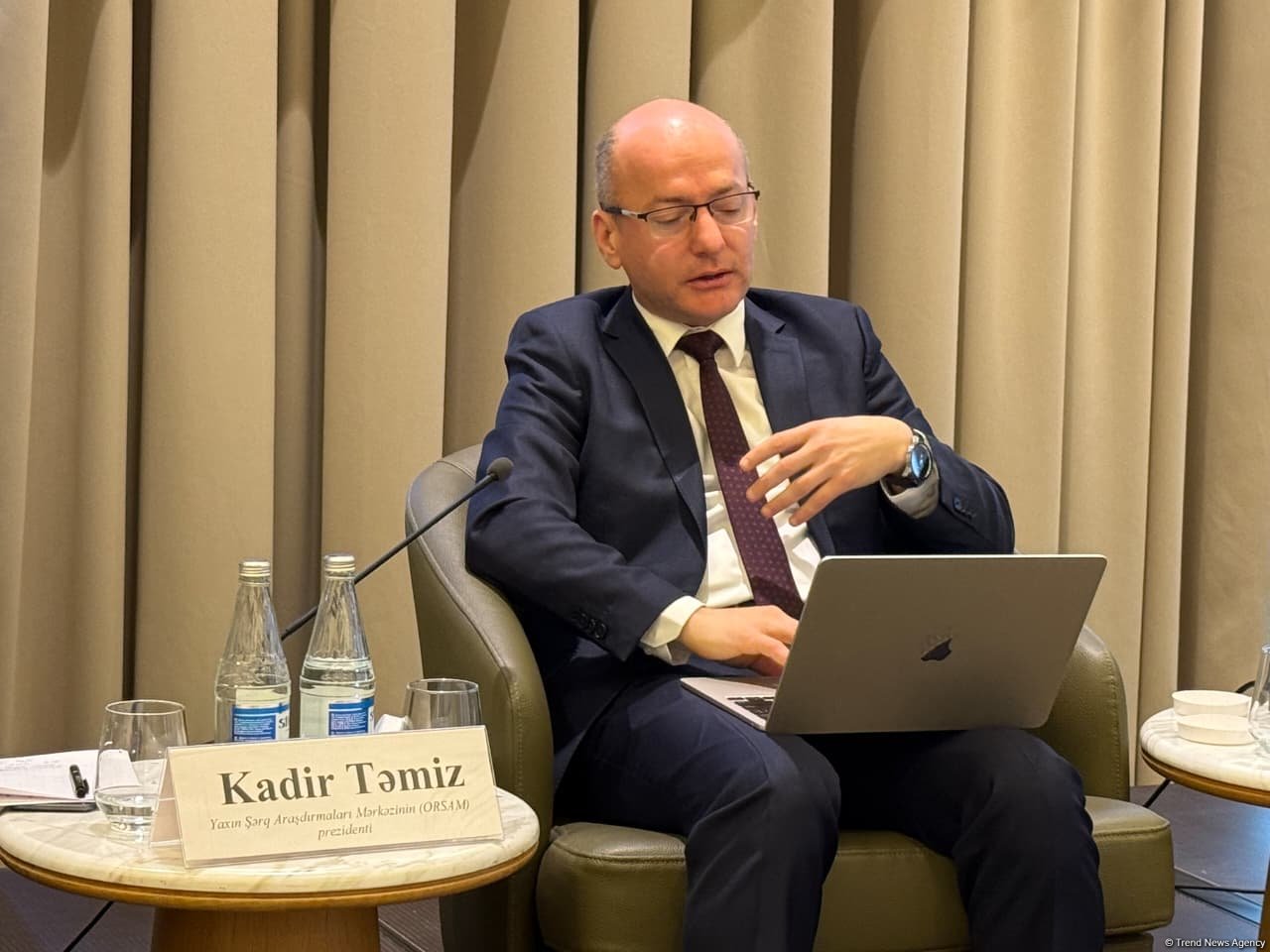SHUSHA, Azerbaijan, November 24. The strategic partnership between Ankara and Baku enables more effective management of regional processes, Kadir Temiz, President of the Center for Middle Eastern Studies (ORSAM), said in his speech at the First Forum of Azerbaijan-Türkiye Think Tanks in Shusha, Trend’s regional correspondent reports.
"Experts note that while the two countries are independent states with occasionally differing interests and policies, alignment in strategic vision and core principles forms the foundation of their alliance, sending a strong signal for cooperation to other nations," he added.
Temiz emphasized that Türkiye’s key Middle East policy directions should be harmonized with Azerbaijan–Türkiye cooperation.
“Three main pillars of Türkiye’s regional policy are particularly noteworthy. The first is the approach to security and stability. Türkiye’s Middle East vision is rooted in the concepts of security and stability. As highlighted in official documents from the National Intelligence Organization (MİT) and the Ministry of Defense, Ankara acts as a stabilizing actor in the region. Operations in Syria and active engagements in Iraq, while sometimes criticized, aim to strengthen state capacity and prevent gaps from being filled by terrorist groups. This policy is crucial both for Türkiye’s security and for restoring regional order.
The second pillar is diplomatic normalization and regional cooperation. Since the transition to a presidential system in 2017, Türkiye has adopted more flexible and responsive foreign policy mechanisms. Ankara has rapidly resolved tensions with Syria, the UAE, Saudi Arabia, Egypt, and other regional countries, opening new dialogue channels in transport, energy, and trade. Negotiations with Syria, the restoration of relations with Egypt, expanded cooperation with Sudan and Libya, and coordination efforts in the Eastern Mediterranean exemplify this diplomatic normalization strategy.
The third pillar involves geoeconomic connectivity and new projects. Türkiye’s Middle East strategy emphasizes energy security and transport corridors, which play a key role in the development of Azerbaijan–Türkiye relations. The Zangezur Corridor, the Middle Corridor, energy transmission lines, and logistics routes create a complementary cooperation model between the two countries. Additionally, Türkiye’s joint ‘Development Road’ project with Iraq, a transport line from Basra through Türkiye to Europe, opens new opportunities for regional economic integration. If Syria stabilizes in the future, this corridor could be further expanded.
In summary, these three pillars of Türkiye’s Middle East policy, security, diplomatic normalization, and geoeconomic connectivity, serve to deepen the strategic partnership with Azerbaijan. This model enhances the regional influence of both countries and creates new platforms for stability and development in the Middle East and South Caucasus,” Temiz said.
Stay up-to-date with more news on Trend News Agency's WhatsApp channel







